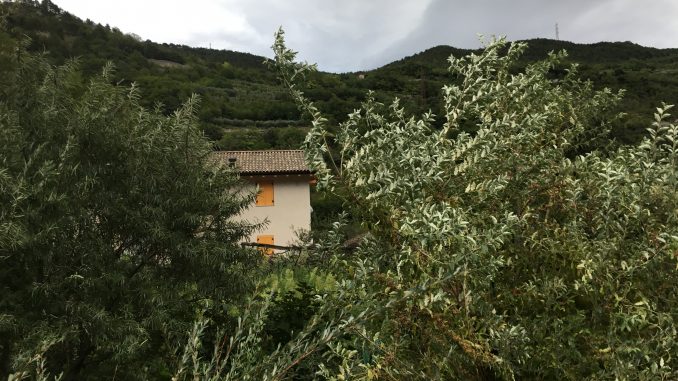
We’re back on Chiara Garini’s farm at the foot of the Italian Alps. After her ambitious plans to open an on-farm restaurant, Chiara reflects on the benefits of taking the slower path to paradigm change. Paradoxically this setback serves well her overall vision of agri-food systems as the farm continues to reap the benefits of diversification. Meanwhile in local politics, divisive narratives around farming have led to a disappointing development, leaving Chiara more convinced than ever that agroecology is the way forward.
 With autumn time, here I am for some new seasonal updates. As always the positive points in the story come with some negatives. Overall though I can be happy: we got through another productive season, the farm still exists and there are exciting perspectives as well!
With autumn time, here I am for some new seasonal updates. As always the positive points in the story come with some negatives. Overall though I can be happy: we got through another productive season, the farm still exists and there are exciting perspectives as well!
I hope not to disappoint anyone but the first update I must give is about the micro-restaurant I was writing in the last letter. As great as the idea was, it has not happened in the past months and will probably not happen in the near future either.
Bureaucracy is blocking this development as the Rural Development Programme (RDP) financing measure we applied for (for the reconstruction of the farm building) does not allow for catering activities. In other words, even if we do satisfy all the requirements – both in terms of farm structure and facility – for opening an agrotourism activity, we cannot do it in the same building for which we are getting financing that is only for storing, processing and selling farm products.
It might sound complicated but this is the reality of the RDP measures – at least in this province.
Jeopardized vision of rural development
The general objectives of the RDP include the promotion of multifunctionality on farms and their territorial development linked with the tourism sector. However as this measure is exclusively for agrotourism, I cannot use that financing in the same building that is being financed by another measure.
In practical terms, within the same RDP for my province, one measure limits another. In a sense this jeopardizes the overall vision of rural development. I got the same impression from the province’s agricultural service staff, who explained what I can and cannot do in the renovated building. For the next 10 years, at least, this financing measure binds me to some obligations.
Long story short we cannot open the micro-restaurant unless we give back to the province lots of money, which is out of question for now.
Slower path to paradigm change
Given the enthusiasm I had for this possible development of the farm, this story might sound frustrating. But at the end of the day, it is not that bad at all. As exciting as the idea was, it was unrealistic. As a new farm it is fundamental to consolidate the production side in the field, and to undertake development of the post-harvest phases step by step. I have to admit that going all the way to cooking was too fast a turn through the supply chain.
After the limits of bureaucracy brought us back to the slower path we could focus “only” on farming, processing and selling our products.
This “slower” path allows us to pursue one of our main objectives which is taking care of the whole supply chain of our food products.
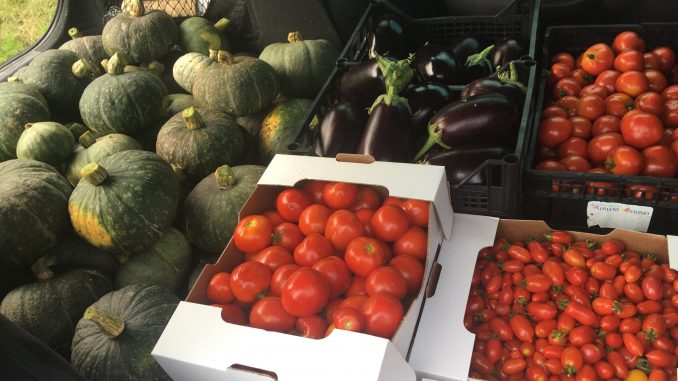
Taking on-farm micro-industry to the next level
Our unique case fits well within a more general vision I have for agri-food systems.
The change of paradigm needed in my opinion is to overcome the idea that farms are only primary producers of raw materials for the industry and distribution sectors, and to embrace the challenging idea that farms can take care of a much larger part of the supply chain, up to the end products.
I recognize this general vision cannot be easily applied to every farm and even less to the whole agri-food system. However this is the challenge we are facing for my farm and with the new building ready for next season we are looking to take this idea of on-farm micro-industry to the next level.
The renovation works of the building took much longer than expected thus for this past summer we were processing our products in the same small lab where we dried the mushrooms last year.
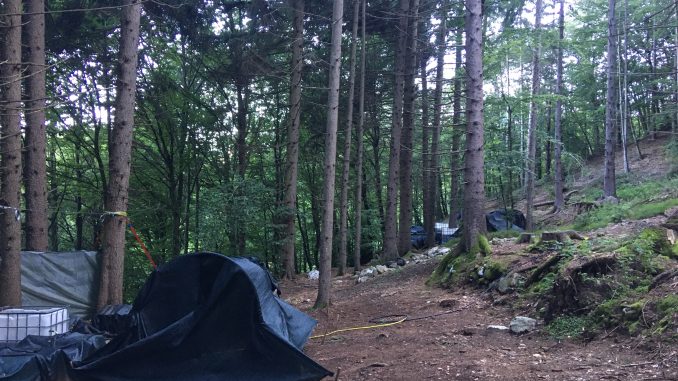
Diversification was the right choice
The production of forest farmed shiitakes was lower than our expectations. The problem was on the one hand we hadn’t considered the obvious yearly fluctuations in the business plan assuming the same very great yield of last year, and on the other hand we need to better look after some production phases (the incubation phase of the logs, and pest management, as for the first time we had some mice and slugs in the way).
Nevertheless we had very good yields of vegetables, confirming our right choice for diversification instead of expansion of a single culture. So now that our e-shop is pretty much ready to work we have not only dried shiitakes and herbs available but also a selection of dried vegetables and fruit ready to bring the taste and nutrition right from our forest garden to people’s kitchens.

Indifferent consumers
Going back to a more general framework, if only the limited one of this Province, something quite relevant happened in recent weeks. The citizens of Trento were called to vote in a referendum about transforming the province into a biodistrict (meaning that nobody would be forced to adopt organic agriculture, but some administrative efforts would be put towards the promotion of organic agriculture and short supply chains).
The results were discounted though as the required 40% quorum was not reached. Only around 15% of the population went to the ballot boxes.
The failure of this political consultation highlights the indifference of many consumers, and the conflicts existing within the farming sector. The conflict between organic and conventional farmers may be real or only alleged, but it was surely fostered by the local farmers’ union, which I am also part of, who deliberately miscommunicated about this referendum – thus contributing to the narrative of extreme environmentalism VS. pragmatic productivism.
Such an approach leaves me pretty upset as I believe the debate should be more in step with the times, which require us humans to find comprehensive solutions which take into account ecological objectives together with economic ones.
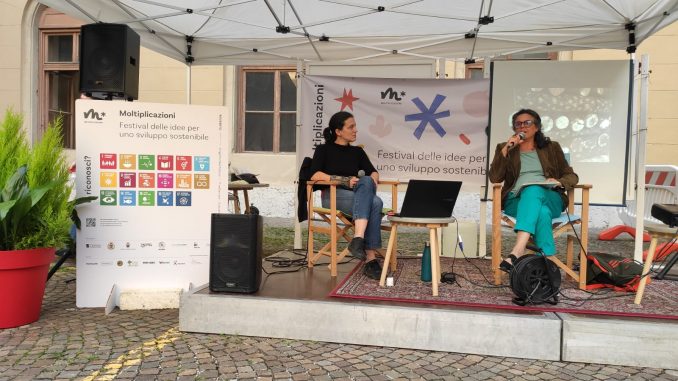
Divisive narratives
In my view we surely cannot keep thinking only about our mere human interests but we cannot think only about “preserving” the environment either. I believe both the conventional productivist logic and the utmost conservative environmentalism are wrong as they both consider humans as separated observing entities who can control the rest of nature.
In this sense the concept of agroecology is pivotal to me as it does consider ecological care together with people’s interests. For this reason I believe agroecology has a much greater likelihood of success and long term sustainability compared to either of those narratives.
Fortunately these topics are not just of interest to me and other people like to debate about them, as happened recently at the Moltiplicazioni Festival, a local festival on ideas for sustainable development, where I had the chance to talk about my farm and agroecology, hopefully giving my small contribution to such complicated themes.
More from Italy
Letter From The Farm | Three Years In: Realism And Planning For Utopia
More letters from the farm
Letter From The Farm | Rasputin The Ram & The Ethics Of Lamb For Easter Dinner
Letter From The Farm | Freedom, Forgotten Places And The Future Of Farming
Letter From The Farm | The Resilience and Privilege of a Rural Homestead
Letter from a Farm | Saving Carrottop – the Life of a Cow in Mayo




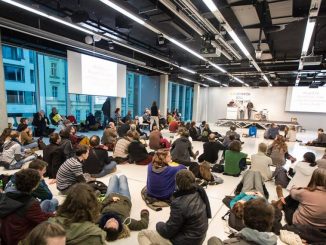
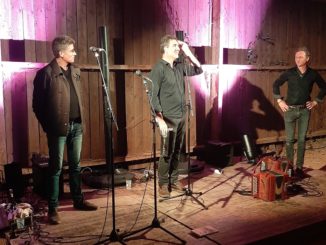
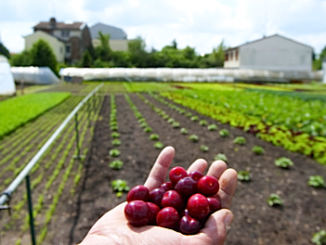
1 Trackback / Pingback
Comments are closed.